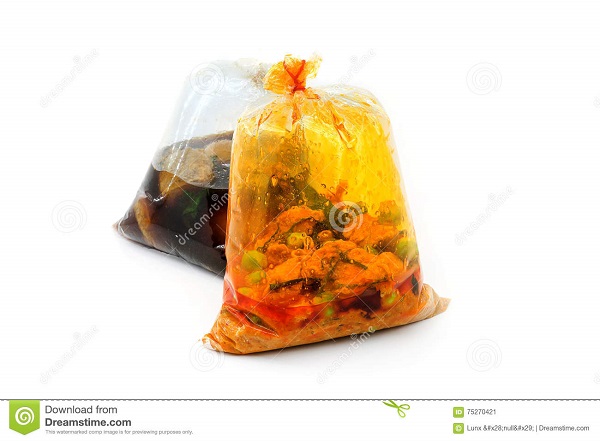The Mirror's Health , Lifestyle and Fashion

Store food in paper, jute, cotton not polythene — Dietician
He instead recommended paper, jute and cotton bags or stainless steel cookware to avoid the health implications that come with storing hot food in polythene or plastic bags.
Advertisement
In an interview in Accra with The Mirror on Tuesday, April 5, 2022, he explained: “When food is stored in polythene and plastic bags, two chemicals found in plastics, bisphenol A and Phthalates can leach into the food, acting as contaminants. Polythene bags contain long chains of ethylene monomers. Ethylene is derived from natural gas and petroleum and also has heavy metals, flame retardants, phthalates, bisphenols and fluorinated compounds which increases the rate of chemical migration from the container into the food when exposed to high temperatures.”
Health risks
Mr Letsa added that “the migration of such components may adversely affect the quality of the food by for example altering its flavour. Studies have shown that these chemicals have been linked to tissue changes, genetic damage, early puberty and hormonal changes.”
He said polythene bags and plastics contained heavy metals such as lead, cadmium and cobalt chromium in varying concentrations and those chemicals exposed one to kidney diseases, brain damage and caused bones to become weaker, as they migrated into food during the cooking process at various temperatures.
“The rate of their migration increases as the temperature rises and could also cause burns. The polythene and plastic bags end up polluting the environment, leading to choked gutters that cause flooding. When these plastics get into our water bodies, they reduce the life shield of fishes and aquatic life in the sea,” he stated.
The dietician encouraged manufacturers to use biodegradable plastics to help tackle the current plastic waste menace in the country and reduce risks associated with consumption and storage of food in plastic or polythene bags.
He also appealed to stakeholders in the sector to intensify efforts to get legislation to make the use of biodegradable plastics mandatory and scale up awareness of the dangers of using polythene and plastic bags for hot consumable items.
Effect of exposing sachet water to sunlight
Mr Letsa explained that even “the exposure of sachet water to sunlight leads to acceleration of organic compounds leaching from the packaging material to the content. There is also a slight variation in PH when sachet water is exposed to sunlight at over 28 degrees celsius. It becomes poisonous and may result in kidney and liver failure”.
On claims that a ball of banku wrapped in polythene is equal to 135 sticks of cigarette, Mr Letsa said “there is no research to back it. Although it has been established that putting consumables into plastic can be harmful to the body, it remains unclear whether banku wrapped in plastic equals to smoking 135 or 136 sticks of cigarette.”




